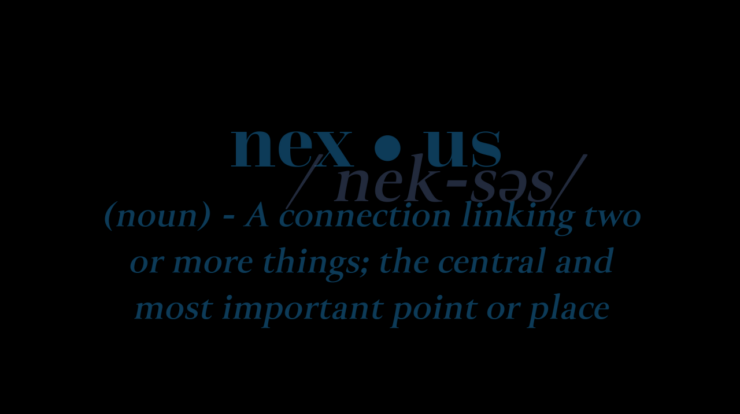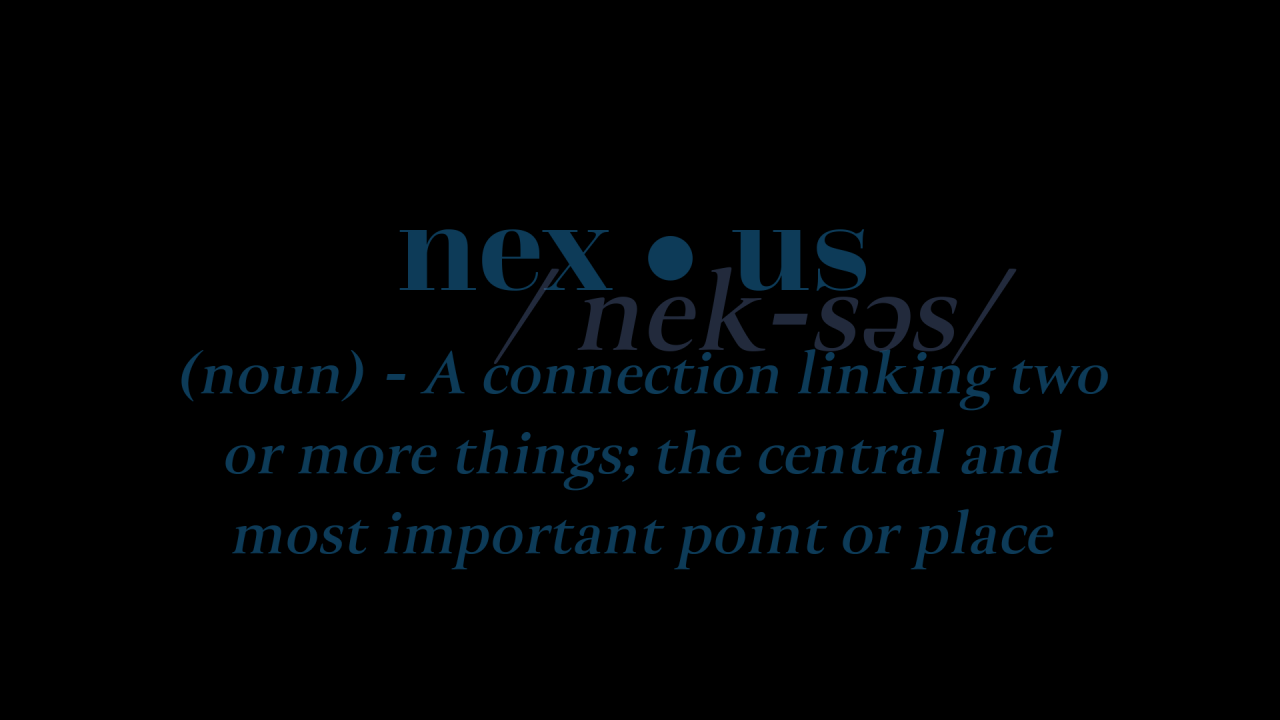
Nexus definition is a multifaceted concept that has permeated various disciplines, from law and science to literature and art. It signifies a connection, relationship, or link between two or more entities. Understanding the nexus definition is crucial for grasping the underlying dynamics and complexities that shape our world.
The term “nexus” originates from the Latin word “nectere,” meaning “to bind” or “to tie.” Throughout history, the nexus definition has evolved, encompassing diverse interpretations and applications. In law, it refers to the connection between a person or entity and a specific jurisdiction or legal matter.
In science and technology, nexus denotes the relationship between variables or elements, enabling researchers to identify patterns and correlations.
Nexus Definition

The term “nexus” is derived from the Latin word “nectere,” meaning “to bind” or “to connect.” It has been used throughout history to describe a connection, link, or relationship between two or more entities.
Types of Nexus
- Causal Nexus:A relationship in which one event (cause) leads to another event (effect).
- Logical Nexus:A relationship based on reason or logic, where one idea or statement follows from another.
- Legal Nexus:A relationship recognized by law, such as the connection between a crime and a suspect.
Nexus in Law, Nexus definition
In law, nexus refers to the connection between an individual or entity and a particular jurisdiction or legal issue.
- Personal Jurisdiction:The authority of a court to hear a case based on the defendant’s physical presence or other contacts within the jurisdiction.
- Subject Matter Jurisdiction:The authority of a court to hear a case based on the nature of the dispute.
- Venue:The specific location where a case is heard, based on factors such as the location of the crime or the residence of the parties.
Nexus in Science and Technology
In science and technology, nexus refers to the identification of relationships between different variables or elements.
- Data Analysis:Identifying correlations and patterns in large datasets.
- Systems Engineering:Understanding the interactions and dependencies between different components of a system.
- Artificial Intelligence:Discovering hidden relationships and insights from complex data.
Nexus in Literature and Art
In literature and art, nexus refers to the use of connections and relationships to create meaning and impact.
- Narrative Structure:Creating a cohesive story by linking events and characters.
- Symbolism:Using objects or images to represent deeper meanings or ideas.
- Intertextuality:Drawing connections between different works of literature or art.
Ultimate Conclusion

In conclusion, the nexus definition is a versatile concept that serves as a fundamental building block for understanding connections and relationships across various domains. Its multifaceted nature underscores the interconnectedness of our world and provides a framework for analyzing and interpreting complex phenomena.
FAQ Summary: Nexus Definition
What is the origin of the word “nexus”?
The word “nexus” originates from the Latin word “nectere,” meaning “to bind” or “to tie.”
What are the different types of nexus?
There are various types of nexus, including causal nexus, logical nexus, and legal nexus, each with its own specific characteristics and applications.
How is nexus used in law?
In law, nexus refers to the connection between a person or entity and a specific jurisdiction or legal matter, determining their liability or legal obligations.
What role does nexus play in science and technology?
In science and technology, nexus helps identify relationships between variables or elements, enabling researchers to uncover patterns and correlations.
How is nexus employed in literature and art?
In literature and art, nexus is used to create connections and convey meaning, enhancing the reader’s or viewer’s understanding and appreciation of the work.





